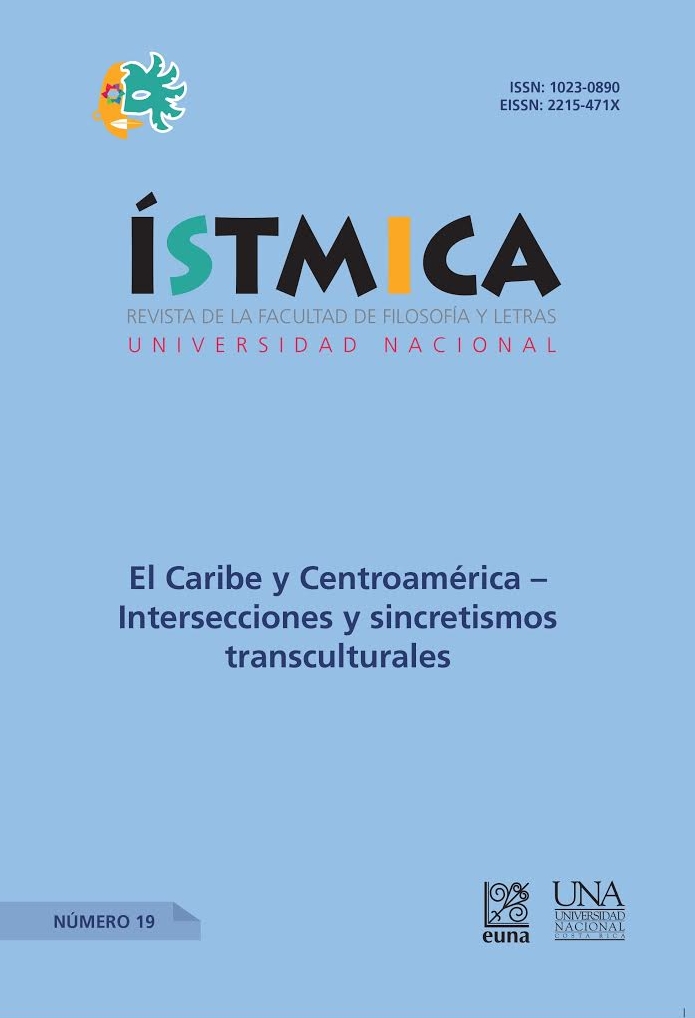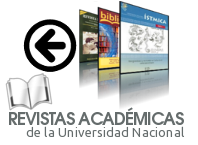¿Haití es aquí? El mar sin fronteras
DOI:
https://doi.org/10.15359/istmica.19.3Keywords:
Caribbean Culture, leterature, Haití, blacknessAbstract
This text proposes a reflection on the theories of culture and/or lit-
erature originating in different Caribbean countries and their pres-
ence in the continent’s literary and cultural studies. This panel, told
in broad strokes, aims to clarify the beautiful essay entitled La isla
que se repite (The Repeating Island, 1998) by Cuban writer Antonio
Benitez Rojo and, based on this reading, looks at the song Haití by
Caetano Veloso and Gilberto Gil, originally recorded as part of the
record Tropicalia II in 1993.
Benitez Rojo’s proposal brings to light elements found at the foundation of our culture marked by the presence of Africans and their traditions throughout the Americas. In each area and region, a different type of music and rhythm arose, but with the common characteristic of constituting the voice against tyranny. Practically all of the musical expressions of the Americas, including spirituals, sung in the churches of North America, jazz, blues, samba, son, tango, rumba, salsa, merengue, cumbia, etc., are related to the music and rhythm of the Africans from the very first moment they set foot on our continent.
References
Benitez Rojo, Antonio (1998) LA isla que se repite. Barcelona: Casiopea, 1998.
Boré, Sergio. (S.F) A música negra nas Américas. http://www.mamaterra.dc/
A musica negra nas Américas. Doc. Consultado em 10/10/2008.
Diaz Quiñones, Arcádio (2007)
Caribe y exílio em La isla que se repite de Antonio Benitez Rojo. Orbis tertius, Revista de teoria e crítica literária, XII(13)
Hall, Stuart. (2001)A identidade cultural na pós-modernidade. Rio de Janeiro: DP&A Editora.
Marras, Stélio. (2008) Caetano Veloso. Pensador do Brasil. http://www.antropologia.com.br/tripo/sextafeira/pdf/num2/caetano.pdf Consultado en 18/10/2008.
Pizarro, Ana(org) (2002) El archipiélago de fronteras externas. Santiago : Editorial Universidad de Santiago.
Veloso, Caetano. http://www.caetanoveloso.com.br/. Consultado en 23/10/2008.
Downloads
Published
How to Cite
Issue
Section
License
Las personas autoras que publiquen en esta revista permiten cesión gratuita, exclusiva, de ámbito mundial de sus derechos de autoría a la Universidad Nacional (Costa Rica), conservando únicamente sus derechos morales sobre la obra publicada.
Los artículos pueden ser citados y copiados, citando a la persona autora y la fuente. Todos los artículos publicados en la Revista Ístmica están protegidos bajo una Licencia Creative Commons Atribución-NoComercial-CompartirIgual 4.0 Internacional








